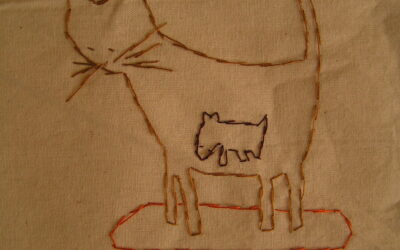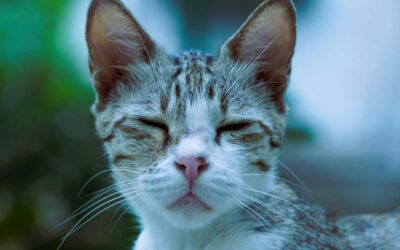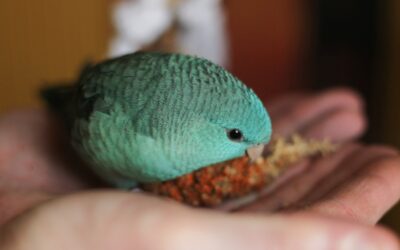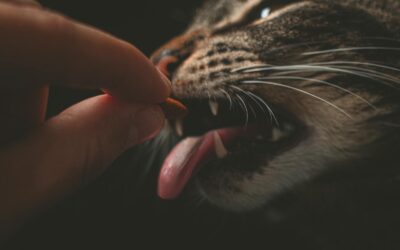Raccoons, with their distinctive mask-like markings and mischievous behavior, may seem like intriguing candidates for exotic pets. Their intelligence and knack for problem-solving make them fascinating creatures to observe. But do raccoons make good pets? While the idea of keeping raccoons as pets may seem exciting, the reality often presents more challenges than anticipated.
This blog explores whether raccoons are suitable as pets, the challenges they present, and why many experts recommend against it. By the end of this guide, you’ll have a clear understanding of raccoon behavior, their needs, and the reasons these intelligent animals thrive best in their natural environment.
The Fascinating World of Raccoons
Raccoons are captivating creatures known for their intelligence, dexterity, and distinctive mask-like facial markings. Native to North America, these adaptable mammals have found a way to thrive in a variety of habitats, from forests to urban areas. While they may pique our curiosity and charm us with their antics, it’s important to remember that raccoons are wild animals and should be appreciated from a safe distance.
Natural Behaviors and Adaptations
Raccoons possess remarkable abilities and behaviors that have contributed to their survival and success. Their nimble hands and sharp claws enable them to climb trees and manipulate objects with ease. They are excellent swimmers and are known to forage along riverbanks and in wetland areas. Raccoons are opportunistic omnivores, meaning they have a diverse diet that includes plants, fruits, insects, small animals, and even human food when available.
Urban Encounters
In recent years, raccoons have become a common sight in urban areas. Their adaptability and resourcefulness have allowed them to capitalize on the abundance of food and shelter provided by human settlements. However, it’s important to remember that raccoons should be observed from a distance and not encouraged to approach or interact with humans.
Responsible Coexistence
Appreciating raccoons in their natural habitat is the best way to ensure their well-being and our safety. If you encounter a raccoon in your neighborhood, it’s best to give them space and avoid feeding or attempting to domesticate them. Raccoons that become habituated to human presence can lose their fear of people and may display unpredictable behavior. Instead, consider supporting organizations and initiatives that work to protect raccoons and their natural habitats.
By respecting raccoons as wild animals and appreciating them from a distance, we can coexist harmoniously with these fascinating creatures while also ensuring their continued survival.

Why Raccoons Are Wild Animals, Not Domesticated Pets
Raccoons are inherently wild animals, not domesticated like dogs or cats. They belong in their natural habitat—forests, parks, and other outdoor spaces where their natural instincts guide them.
What does “domesticated” mean? Domesticated animals, such as cats and dogs, have undergone generations of selective breeding to live harmoniously with humans. A pet raccoon, despite being raised in captivity or from a young age, does not fall under this category. Adult raccoons retain their wild instincts, no matter how tame they may seem.
Natural instincts and behavior:
- Raccoons are nocturnal animals, meaning they are most active during the night. This can result in disrupted sleep patterns for raccoon owners.
- Their sharp claws and ability to open doors or enter secured areas make them mischievous animals, often causing more trouble than other pets.
- Raccoons are notorious biters and can become aggressive, especially when reaching sexual maturity.

The Challenges of Keeping Raccoons as Pets
Strict Regulations on Exotic Pets
Owning a pet raccoon is not just about commitment—it’s also about legality. Many states have strict regulations about keeping exotic pets, including raccoons. Some regions outright ban keeping raccoons as pets, while others require permits.
Before considering a raccoon as a pet, you must research your local laws. Violating wildlife protection laws can lead to hefty fines and possible confiscation of the animal.
Health Risks and Diseases
Do raccoons carry diseases? Yes, raccoons can carry a range of infectious diseases and parasites that pose risks to both humans and other animals. These include:
- Rabies: Raccoons are known carriers of rabies, which can affect the central nervous system of humans and animals.
- Raccoon roundworm (Baylisascaris procyonis): This parasite can cause severe health issues, including damage to the brain and spinal cord.
- Salmonella and leptospirosis are also common diseases associated with raccoons.
Handling raccoon droppings or coming into close contact with them increases your chance of contracting these illnesses.
Behavioral Challenges
Temperament in raccoons is hard to predict. While young raccoons may seem playful and affectionate, their behavior can drastically change as they grow. Adult raccoons are more independent and territorial, which can lead to destructive behavior.
- They have natural instincts to explore by opening cupboards, digging through secured areas, and creating chaos at home.
- Their strong, sharp claws make them capable of causing damage to furniture, walls, and other belongings.
- Raccoons have good memories and will repeat mischievous activities if rewarded or left unsupervised.
Veterinary Care for Raccoons
Finding a vet willing to provide care for a pe1t raccoon can be a significant challenge. Raccoons require specialized veterinary care, which is not always readily available. Their diet, health, and behavior must be managed carefully to prevent health issues.
Don’t forget about their specific dietary needs! Raccoons eat both meat and plants, requiring a balanced diet to stay healthy. Unlike domesticated animals, raccoons’ nutritional needs can be complicated to meet, involving everything from eggs and fruits to kibble and insects.

What You Need to Care for a Pet Raccoon
If you’re determined to domesticate a raccoon, here are the bare minimum requirements:
- Secure Housing: A sturdy, large dog crate is essential when your raccoon is unsupervised. Raccoons are intelligent animals and can easily escape from typical enclosures.
- Dietary Needs: Provide both plants and meat to create a balanced diet. Avoid human junk food, as it can lead to health problems.
- Training and Behavior Management: Some raccoons can be trained to use a litter box. However, this is not guaranteed, as wild raccoons often have difficulty adapting to such behaviors.
- Play and Stimulation: Raccoons are highly intelligent animals and require constant mental stimulation. Without adequate enrichment, they can become bored and destructive.
- Preventative Health Care: Regularly monitor for signs of illness, and be prepared for the additional cost of exotic pet veterinary care.

The Impact on Other Pets and Humans
Raccoons do not always get along with other pets like dogs and cats. If they feel threatened, adult raccoons may act aggressively toward smaller animals or even humans, leading to injuries for everyone involved.
Additionally, raccoons’ fearless and mischievous tendencies mean they can be overwhelming for first-time pet owners or households with children.
Alternatives to Keeping a Raccoon as a Pet
If you’ve been enchanted by the thought of owning a raccoon, consider other options to appreciate them without bringing them into your home:
- Visit a wildlife sanctuary where young raccoons and wild raccoons are cared for.
- Support humane wildlife control organizations, such as Skedaddle Humane Wildlife Control, to protect these animals in their natural environment.
Consider adopting domesticated animals like dogs or small animals that are better suited for life with humans. These options ensure both you and the animal have a positive and safe experience.
Why Raccoons Are Best Left in Their Natural Habitat
While raccoons are intelligent, curious, and undeniably adorable, they are not ideal pets. Their natural instincts and behavior make it hard to domesticate a raccoon completely. Wild raccoons thrive in their natural environment, where they can climb, forage, and interact with other wild animals without restrictions on their natural behavior.
Most animal experts recommend against keeping raccoons as pets due to the many challenges they present. By respecting raccoons’ wild nature, we can admire them from afar while ensuring their health and well-being.
Links and Resources for Keeping Raccoons as Pets:
- Is It Legal to Keep a Raccoon as a Pet? – Learn about the legal considerations and regulations surrounding keeping raccoons as pets in different regions.
- Raccoon Care Guide – This comprehensive guide provides insights into the proper care, diet, and habitat requirements for raccoons kept as pets.
- Raccoon Rescues and Sanctuaries – Explore a directory of raccoon rescues and sanctuaries that specialize in rehabilitating and providing long-term care for raccoons in need.
- Raccoon Behavior and Training– Understand the natural behavior of raccoons and learn about training techniques to create a safe and enriching environment for them as pets.
- Health and Veterinary Care for Pet Raccoons – Find veterinarians experienced in treating raccoons and get information on vaccinations, common health issues, and preventive care for pet raccoons.
Please note that keeping raccoons as pets is a topic of debate, and laws and regulations governing ownership vary. It is essential to research and understand the legal requirements, ethical considerations, and suitability of raccoons as pets before considering this option.
While Kates K9 Pet Care doesn’t provide services for pet raccoons, we do offer services for your small and big domesticated pets! Contact us today!
Final Thoughts: Do Raccoons Make Good Pets?
Ultimately, the answer to “Do raccoons make good pets?” is no—raccoons are wild animals that are difficult to care for in a domestic setting. If you’re looking for a furry companion, consider animals better suited for indoor life. For wildlife enthusiasts, observing raccoons in their natural environment is the healthiest way to appreciate these fascinating creatures.
Want to learn more about humane wildlife control or alternative pet options? Explore our blog for expert advice and recommendations!







